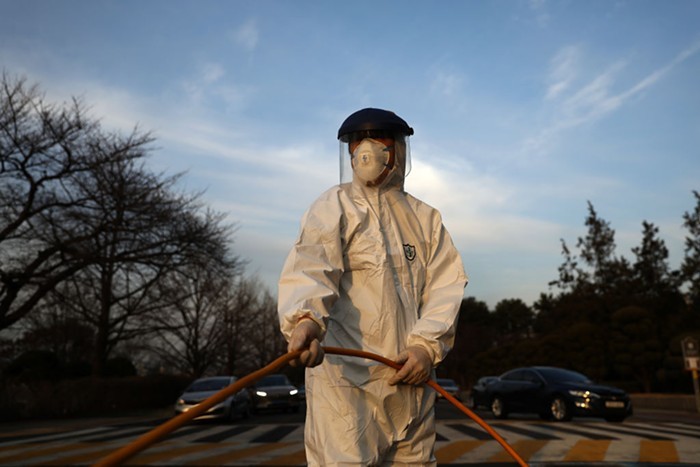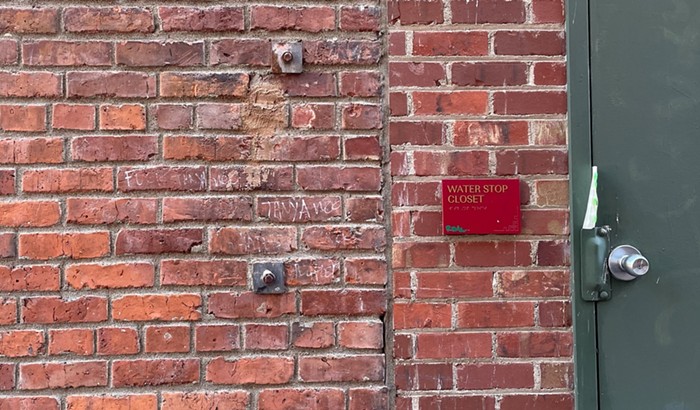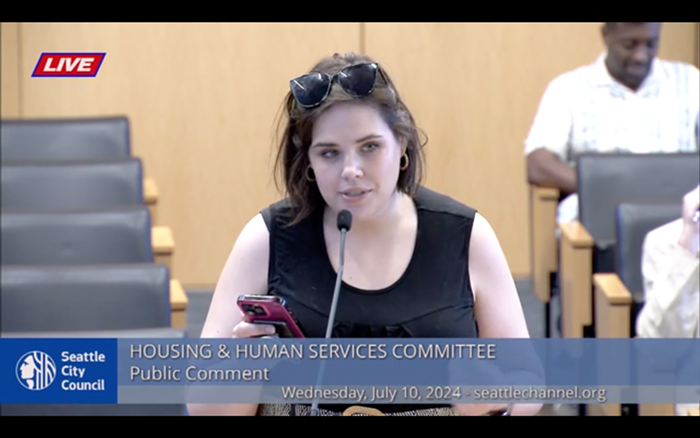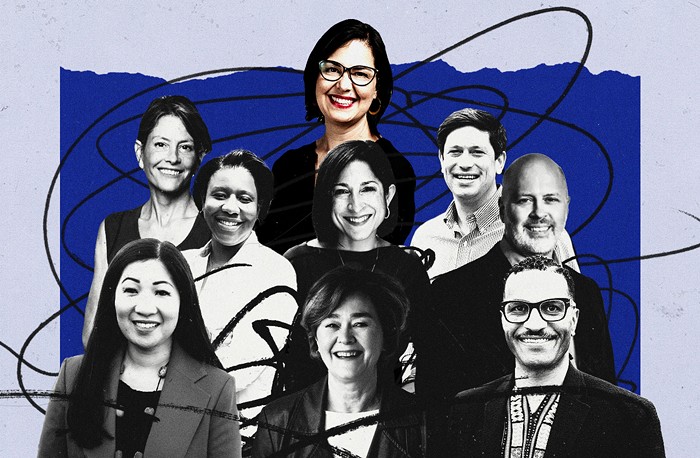
Healthcare workers in the Seattle area and beyond are concerned they're not being given proper training and protective gear to shield themselves and others from COVID-19, the novel coronavirus that has infected over 100,000 people worldwide, including at least 136 in Washington state.
"I don't feel fine. None of us feel fine," a nurse at Virginia Mason’s First Hill campus told me. "I'm getting more information from my kids' school than I am from work. They say they've got a plan in place, but it's not totally clear to the rest of us what it is, and whatever they are doing is completely reactive. They have no idea how to get in front of this."
According to that nurse, as well as others at the same hospital, the only added protective gear they've been given thus far is goggles. "It's like Bird Box," she joked, referring to the 2018 horror film. "Like it’s this disease that spreads through the eyes, and so as long as I wear my COVID goggles and don't look directly at it, I'll be fine.”
An email sent to Virginia Mason staff Friday says that if workers have no symptoms, including a fever of less than 100.3 degrees, they are expected to report to work as normal. (Virginia Mason, in response to questions about the e-mail, told The Stranger: "We are going to pass on the interview request. Our teams and team leaders are very busy at this time ensuring the safety of patients, visitors and staff.")
According to the CDC, however, it can take up to 14 days for people to start showing symptoms of COVID-19, which means that healthcare workers who have been exposed but are asymptomatic and working as usual may be passing the virus onto others. It's an intractable problem, and one that is putting patients, workers, and anyone who comes into contact with them at risk.
Local recruiters are working to bring travel nurses into Seattle to help with this crisis—and are advertising pay rates from $2,600 to up to $4,000 per week for the highest risk areas, including the Life Care nursing home in Kirkland, where 13 residents have died from the illness—but workers shortages are expected as the virus continues to spread.
All local hospitals, healthcare facilities, and healthcare workers are facing similar problems, which will likely spread to other communities along with the virus. At the same time, panic about the virus has increased the number of people seeking healthcare and coronavirus tests, which are severely limited in supply. This means that people who may think they have the virus are going to doctors’ offices and hospitals hoping to be tested, which is overloading the healthcare system and putting even more people at risk. Some will go to the ER with the flu, and may leave with coronavirus.
“It's really fucking complicated,” a Harborview nurse told me. “It's been super messy. Everyone is stressed that we are going to catch it.” (Harborview did not immediately respond to a request for comment.)
“I have kids and I have aged parents who have chronic medical conditions, including cancer,” the Virginia Mason nurse said. “I’m not concerned about my health but if I get sick or quarantined or have been exposed, I can't even check on them. I have no idea what we will do, so I just hope I don’t get it.”
The Washington State Nurses Association, the union that represents nurses at Virginia Mason and other area hospitals, is also hearing concerns from their members.
"Nurses, doctors and other healthcare workers stand ready to respond to this crisis, but they should not have to sacrifice their own health, or risk infecting their loved ones," WSNA Executive Director Sally Watkins said in a statement. "In Washington state, we have heard from nurses that they don’t feel they have the personal protective equipment (PPE) they need, are not getting adequate real-time training, and don’t feel prepared." (PPE includes face shields, gloves, goggles, glasses, gowns, head covers, masks, respirators, and shoe covers.)
CDC guidelines for protecting healthcare workers seeing COVID-19 patients did include respirator masks, but this week, according to the Spokesman Review, the Washington state Department of Health stopped recommending that healthcare workers use N95 air filtration masks and instead recommended they start following the World Health Organization guidelines, which are less stringent for those workers who aren't doing procedures that could aerosolize the virus.
The union opposes this change, and fears the CDC will lower their recommendations as the supply of respirator masks goes down and the need for them goes up.
“Lowering the standards for protective gear will weaken the ability of nurses and other frontline caregivers to safely care for their patients in this public health emergency,” Watkins said. “N95 respirators are the necessary and minimum protection for our nurses and healthcare workers.”
But a nurse who has had direct contact with COVID patients at Harborview says that as of last week, they were only given surgical masks for treating some possible COVID patients, not respirator masks, which fit tightly around the face and filter out airborne disease as well as droplets.
“There is a command center here and everyone is doing their best,” said the Harborview nurse. “What's going on is not the fault of the hospitals. The problem is that we are receiving very little state and federal support because no one knows what to do. It's mostly stressful because we don't have any resources. I texted my family and friends and told them, ‘If you get sick, do not come to the hospital. Stay home. You do not want to come here.’"



















